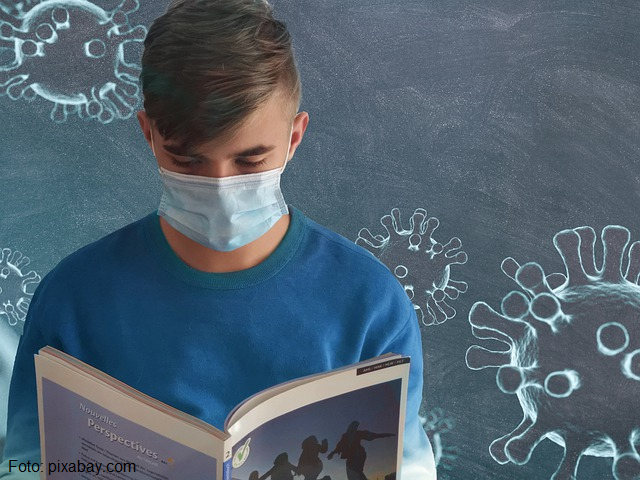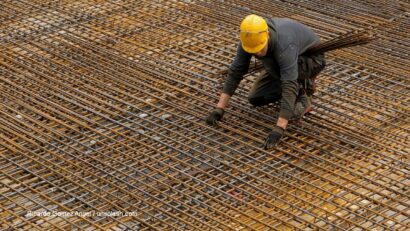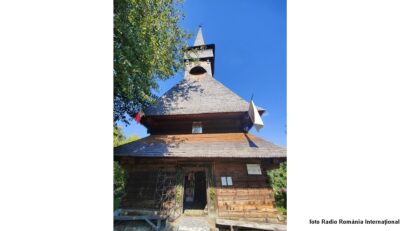The start of the new schoolyear in Romania
The Covid-19 pandemic still looms over the start of the new schoolyear

Christine Leșcu, 15.09.2021, 14:00
The
new schoolyear has officially started on September 13 for the entire secondary
education system. This time around, it has been decided that the physical attendance
in classrooms should prevail over online tuition. Consequently, one of the
official scenarios jointly elaborated by the Healthcare and Education
Ministries stipulated those classes will begin with physical attendance when,
according to the COVID-19 infection ratio, six and less than is six people in
1,000 inhabitants are reportedly infected with the COVID-19 virus. There is,
however, a second scenario, whereby online tuition will be resumed when more
than six people in 1,000 inhabitants get COVID-19 infected. The rationale
behind the physical attendance scenario says that pupils’ results the previous
school year were worryingly below par, since for their greater part, children
went online for their classes. However, irrespective of the scenario, sanitary
measures are a top priority. The authorities have assured us they would provide
detailed explanations for the measures in place, to the best of their
abilities.
National Education Minister, Sorin Câmpeanu:
There will be one person in each school whose job is to facilitate the
meeting between the medical staff and the parents, so that they can answer
vaccination-related questions and, obviously, bring arguments in favor of complying with the
sanitary measures. We begin with the ear-loop mask, which is mandatory on the
premises, then there is the physical distancing, to be observed wherever
possible, then classes need to be aired properly and hygiene measures will
definitely have to be observed. Concurrently, we will also enact those
information activities whereby we present the importance and the necessity of
the vaccination, since vaccination is the only act by means of which we can
stem the crisis.
However,
speaking about the pace of the vaccination process as of late, the Minister
admitted the progress was very slow. Three days before the classes kick-start,
a little bit over 15% of the pupils aged 12 were vaccinated, whereas 61% of the
total number of national education system employees were vaccinated with both
shots.
Minister Sorin Campeanu tells us how
the issue will henceforth be broached:
In our scenarios, there is no difference between the vaccinated pupils
and those who are not vaccinated. If an official minister’s executive order
outlining the scenarios in their broader scope had made that difference with no
basic legal grounding, we would have broken the discrimination law. We
understood that quite all right. Which doesn’t mean no legal grounding will be
possible to encourage discrimination from that perspective as well. In a
separate move, if infection cases are reported in a classroom, that definitely
is in the scope of medical protocols. A differentiation is being made, between
various infection cases, which applies to pupils who are older than 12 and who
can be vaccinated and who, should they get the shot and express their wish to have
physical attendance, they are being given that opportunity. There is yet
another scenario we have created, that of limiting the online teaching period
to a half, should an infection case be reported. After a week, in the eighth
day, if the previously infected pupil turns up for the test and if he tests negative,
physical attendance in that particular school can be resumed beginning that
eight particular day and not in the 15th day, as it had been
previously stipulated. So the quarantine period has been reduced. The
opportunity has been created in order to reduce the online teaching period.
The
present reluctance regarding the vaccination of pupils also depends on the
parents’ attitude, which changed during the pandemic, according to a recent
online survey.
Paediatrician Mihai Craiu:
This year, we noticed it in this prospective survey tackling parental
perception and which was carried following a questionnaire that was given out
for three days and to which more than 1,290 Romanian parents responded, most of
whom were mothers from urban areas, higher education graduates. We noticed a
significant drop in the percentage fear of the adults who responded to the
survey, to get COVID-19 infected. As regards the fear of children in a family,
occurring in the event of an infection, the percentage has seen significant
drop, from 76% to almost 50%. The fear percentage has dropped to a greater
extent as regards children, and that, most likely, is the outcome of the fact
that a great many adults have already been vaccinated.
.
That
is why, in the COVID-19 vaccination info campaigns, it is important that
parents are told what the effects of vaccination are, as detailed as possible.
Medical doctor Mihai Craiu:
It is safety we need to speak to parents about. Nearly 5 billion shots
have been administered worldwide. The figure is indeed stout, since there is no
other modern vaccine to have been given, in less than a year since its
administration began, in such a tremendous percentage and with no gross signs
of adverse effects. There are obviously paediatric-related safety issues. A
myocarditis-related warning is in place, especially with boys, but, quite
unlike the affection caused by the SARS-COV virus itself and, subsequently, by
the paediatric multisystemic inflammatory system, such a warning symptom is extremely rare
and much less severe. In effect, with Caucasian children, so with such children
as those from Romania, who were in good health prior to vaccination, no such death
case has so far been reported.
Being
fully aware of everybody’s right to made their own decision for themselves and
for their families, the Parents’ Association Federation has so far refrained
from making a downright recommendation, for or against the vaccination.
The president of the Association, Iulian
Cristache:
That is a much too intimate, a much too private thing for us to make a
recommendation, as a federation, for people to get vaccinated. What we can do,
though, is to support parents through these information campaigns we have
already initiated, both with the Education Ministry and the Romanian
Government. We carried campaigns with the educational units, we had meetings
with general school inspectors at county level where we had video conferences
with school principals participating, as well as with the parents who had
enough spare time for that. I just want my attitude to be extremely balanced,
when it comes to the vaccine, since it is in no way an easy decision to be
taken. Such a decision must be taken at family level alone. What we can do is
ask the two ministries to send in their specialists at the level of educational
units and inform the parents, so that each parent can decide for their own
child.
To
that end, Iulian Cristache has spoken about how they did it in his own family:
My and my wife got vaccinated as we were aware that, at least judging by
the info we get, it is the only way by means of which we can still protect
ourselves from the virus. Anyway, we got infected and we had a 14-day home
quarantine that is why we know it is not easy to go through that unpleasant
experience. But my daughter, who will be 16, did not want to be vaccinated. We
had a talk, and she decided to hold on for a while, to wait, without, however,
saying she did not want to get vaccinated. As we speak, for a short period of
time, at least, she doesn’t want that, and the moment she decides she will let
us know and will take the vaccine.
Concurrently,
both parents’ association representatives and other educational experts have
emphasized the fact that one of the reasons of families’ reluctance to
vaccinate their children has to do with the wide range of antagonistic opinions
expressed in the mas-media and on the social networks, considering how safe
the vaccine is, for people’s health.
(Translation by Eugen Nasta)






























